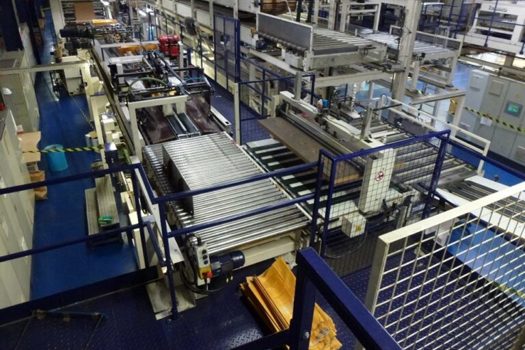The UK publishing industry is now worth £5.7bn after an uptick of income from book sales of 5% across 2017. In the PA’s 2017 yearbook this week, it was revealed that total book sales income rose 4% to £3.7bn last year across both physical and digital formats.
However, amid the overall uptick digital book sales declined by 2% – indicating a move back to physical books within the market.
PA chief executive Stephen Lotinga said: “As a general rule, we’re seeing those parts of publishing which moved to digital first levelling off and print performance returning, whereas sectors which were slower to move to digital are seeing surges in digital growth now.
“The rise in print book sales signals an ongoing return of consumers to this format. There’s definitely an enduring appeal to printed books and there are a variety of reasons for that.
“Physical books have become celebrated again as objects of beauty and publishers invest a lot of time and thought into making their print books beautiful, commissioning celebrated designers and illustrators and ensuring that print continues to be a desirable form of reading.”
Lotinga said he anticipated that publishers would regain their confidence from the figures and continue to invest in both print and digital.
He said the UK remains the world’s top book exporter, which should encourage publishers and printers. Sales of physical books to Europe increased 13% to £489m, and to East and South Asia by 8% to £248m.
PA predicted that print sales will “remain resilient” when the 2018 yearbook is published.
Further indicators of success in physical book sales came in the non-fiction/reference book market, where sales were up 2% to £620m, and with hardback fiction book sales up 31% to £97m.
Book printing made the headlines at the start of 2018 when Clays was commissioned to print Fire & Fury, US journalist Michael Wolff’s account of the first year of the Trump administration, for the UK market.
Clays sales director Vicky Ellis indicated that sales were up on books in general, but that the impact on printers had not been transformative.
“The increase in book sales has impacted our business but not to the same level as growth as the sales figures suggest,” she said. “What we have seen is a continuation of publishers managing their inventory more tightly as we print closer to the firm retailer order resulting in our average print run lowering but titles printing more frequently.
“The second half of the year is always busier as production gears up for 'Super Thursday' and the Christmas demands. We expect the trend to continue with the average run length of books reducing and the amount of orders increasing during this period.
“It is my belief that people turn to books as escapism and a break from the world of digital and social media. We will be making further investments in digital to service the change in the order profile of work we now produce.”
While domestic sales for physical school books were noted to be down 12% to £158m, there was a rise of 2% in exported physical school book sales to £93m. Total physical sales solely in English language teaching (ELT) books were found to be up 13% to £20m.
In the face of these figures, Berwick-upon-Tweed book printer Martins the Printers said its learning resource-based business had reached a long-elusive level of stability in recent months.
Sales director David Martin said: “There certainly has not been a boom, but business has been a lot more stable over the last 12 months or so – as opposed to a rush of jobs being followed by a quiet period.
“This could be down to a number of things – rising prices at overseas printers and increasingly short run lengths may mean publishers need to move a lot faster and must return to domestic providers for their work. Hopefully, it will stay stable going forward, but the concern with Brexit is that no one knows what will happen.
“You can use a book over and over again, whereas digital products need updating and can often be expensive, which is why I think physical resources and revision books remain popular with schools. People still like to use books.”
In news related to the book trade, it was announced on Thursday (26 July) that Circle Media Group had bought the £320m-turnover CPI Group in order to make the most of the French-headquartered book printer's pan-European presence, which includes a number of bases in the UK.










